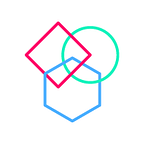Ruth Baker — Makers Fellow
Ruth is a Makers Fellow, transforming her career from science publishing to software development. She built her tech skills through open resources and by attending codebar events in London, and is now a moderator for virtual codebar.
Ruth lives in Kent, UK, with her partner (also a dev!), and cat Pepper (not a dev!). She is a volunteer for the Bumblebee Conservation Trust, and her other interests include tap dance and ballet.
You can find Ruth on the internet at:
What did you want to be growing up?
When I was very young I wanted to be a mounted police officer — get paid to own a horse? Yes please. During my school years I wanted to be a choreographer, and at college I was considering a career as a sound engineer. I went on to work briefly in music events, then worked in STEM publishing for a decade.
When did your interest in tech start?
I was part of an online music community and I’d seen others making websites and followed their lead. I muddled together HTML pages by exploring view source and finding tips on the web, and I used free web hosts to make websites for my projects. I’d tinker with CSS on myspace. Strangely this loose knowledge was helpful in my non-tech career.
When I saw the potential that programming could have in my job it gave me a greater interest in learning to code, but the frustration of not being enabled to use tech in my job drove me to change career.
How did you make the transition to being a developer?
I already knew I had a technical way of thinking that was underused in my job. I spoke to developers, UX designers, tech managers about their jobs, and followed developers on Twitter. I considered transferring to the digital team in my company, but decided enrolling at Makers was a smart route instead. I researched what I needed to join their fellowship and how to make my candidacy watertight. It worked! I worked peripherally for a year or more on improving my coding ability, but I handed in my notice and became focussed on my new career about four months before an opportunity came up to join as a Fellow — all that groundwork meant I was ready to apply as soon as the opportunity arose. I start the Fellowship this month.
What was your first development job?
A band I followed saw my myspace profile customisation and asked me to customise their myspace page (unpaid) for their record release — so I did… having learnt a thing or two about projects since then, I would not take such an overzealous approach today!
Actually collaborating with someone is a great way to quantify your skills, find knowledge gaps to guide learning, and practise communication with a client. You might also produce something wonderful to show off in your portfolio.
What is your favourite thing about being a developer?
The joy from succeeding after being completely stumped on a problem. I can’t be the only person who claps themselves when they’ve made something work correctly?!
How did you get involved with codebar?
codebar was recommended to me by a colleague. Once I’d focussed on a career change, I chose to be outwardly accountable for my learning, and joining the tech community via codebar was a way to do that. I found that the support and the shared network of the coaches/students is so so valuable, and the hard work the organisers put in to fostering community makes it easy to feel welcome.
Around the time I left publishing, Charlotte Zhao was starting to grow the virtual codebar with an idea that the community can be open globally and around-the-clock, so I offered to help with the project. Charlotte was happy to have someone share her vision and, I’m glad I volunteered!
Why do you keep coming back to codebar?
It’s fun, rewarding and an effective way to grow skills. Aside from working towards a coding goal, just by pairing with someone you can learn cool keyboard shortcuts and become a better technical communicator. At irl meetups you get a peek at the work environment at companies like Google and Deliveroo too. At virtual sessions you can have a remote working experience, and try out conferencing tools.
What are your plans for the future?
When I finish Makers I’ll have a full-time developer role for at least a year with a corporate partner. That first job after completing the course will be full-on, and I intend to get experience across as much technology as humanly possible during that time. I will continue to learn the trade and refine my technique within my team, and later in whatever projects I end up working on down the line. Part of the ethos of being a developer is sharing, and coaching others is part of that. It’s exciting to think I can give others a leg-up and help make the tech environment more diverse and inclusive.
What advice would you give to aspiring developers?
Trust yourself
— You know what path is right for you; let yourself be supported by the tech community; do your best.
Know your direction
— Speak to people about their jobs, their team, their experience; ask yourself if you’re comfortable being a lifelong student; do good, be forward thinking, be kind.
Make things
— Get set up and start making real things, it works wonders!
What is the bravest thing you’ve ever done?
I don’t think I am brave, but I have done some pretty fun things! As a dancer, I’ve performed at a French cabaret, improvised with live jazz bands in New York and London, and shared a stage with Dizzee Rascal and Tim Berners-Lee at the London Olympics (weird but true…). I am guarded about strangers seeing my shopping at the supermarket checkout, so that’s quite an achievement, isn’t it? :)
